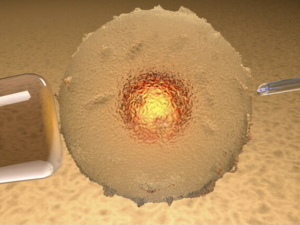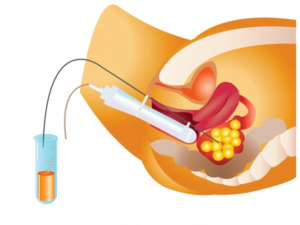ICSI
ICSI In Iran
Best ICSI clinic in Iran
 ore than 2500 Iranian and foreign patients are going under ICSI treatment in Iran each year. ICSI treatment in Iran is on top of the middle-east regarding its skilled specialists and surgeons. Here are the best hospitals for ICSI in Iran:
ore than 2500 Iranian and foreign patients are going under ICSI treatment in Iran each year. ICSI treatment in Iran is on top of the middle-east regarding its skilled specialists and surgeons. Here are the best hospitals for ICSI in Iran:
- Royan Clinic
- Ebne Sina Clinic
ICSI cost in Iran
There is a significant difference between the cost of ICSI in Iran and other countries. The most important factors for the low price of it in Iran are:
- A large number of ICSI hospitals in Iran
- A large number of applicants for ICSI in Iran
ICSI cost in Iran varies depending on the surgery and the hospital. An average cost of ICSI in Iran is
ICSI cost in Iran in comparison with other countries
Best ICSI surgeon in Iran
More than 24.000 fertility treatments are being performed each year in Iran. Experienced Iranian doctors with an excellent record are performing the operations. One of the most important factors for choosing a good surgeon for ICSI in Iran is the doctor has done many ICSI surgeries.
Why should you travel to Iran for an ICSI?
Many patients travel to Iran for an ICSI. One of the reasons for this matter is Iranian specialists and surgeons who have high surgery success rates.
- low cost of ICSI in Iran
- low cost of accommodation in Iran
- Well experienced doctors
- The high number of ICSI in Iran
Diagnostic and surgical centres accordant with today's European standards are performing the highest quality operations in Iran. Another reason for ICSI in Iran is its lower cost compared to other countries.
How long should I stay for ICSI in Iran?
About ICSI
 Intracytoplasmic sperm injection, or ICSI, involves injecting a single live sperm directly into the centre of a human egg; the other steps are like IVF.
Intracytoplasmic sperm injection, or ICSI, involves injecting a single live sperm directly into the centre of a human egg; the other steps are like IVF.
At least 50 million couples experience infertility problems in their marriage. Infertility treatments developed so fast in recent years and it helped many couples to have a normal baby and be happy. IVF is one the most popular and effective used treatments that has a reasonable amount of success rate can help many of these couples to have a baby and be happy. When there is a problem with fertilization between egg and sperm, the doctor will suggest ICSI inject sperm directly in an egg. In many countries, the costs of infertility treatments are beyond the couple’s budget. But it may be easier to compare different clinics and offers abroad, to find the best option with more affordable services. Our country clinics with high technology and more affordable services have helped many couples to have babies.
Recommended for
- People who have been trying unsuccessfully to conceive by natural means for at least one year
- Women with fertility disorders like endometriosis and polycystic ovary syndrome (PCOS)
- Adults with overall good health and realistic expectations
- It’s better for the mother to be under 40 years old
- Men with a very low sperm count or poor morphology or poor motility
- Couples that had IVF previously and none, or very few of the eggs fertilized.
Before ICSI
Before IVF with ICSI, women will give a blood sample for testing ovarian reserve and the level of follicle-stimulating hormone (FSH). The results of this test will give the doctor information about the size and quality of eggs. Couples need to take some medications before or after the process. The doctor will also examine the uterus by ultrasound, which uses high-frequency sound waves to create an image of it. The doctor may also insert a scope through the vagina to the uterus. These tests can reveal the health of uterus and help the doctor determine the best way to implant the embryos. Men also will need to have sperm testing. This involves giving a semen sample, which a lab will analyze for the number, size, and shape of the sperm. If the sperm are weak or damaged, intracytoplasmic sperm injection (ICSI) is needed. It’s important for the doctor to know the parent’s full medical history and control their medications.
During ICSI
Five steps of IVF with ICSI involve stimulation, egg retrieval, insemination, embryo culture and transfer. In the simulation process, the doctors will give the female partner some fertility drugs to increase the number of eggs the body produces because IVF requires multiple eggs to increase the chance of developing a healthy embryo. During this time, the doctor will need to take regular blood test and ultrasound to monitor the production of an egg. Egg retrieval or follicular aspiration is done with sedation. The doctor will guide an ultrasound wand with a needle through the vagina to the ovaries and sucks egg-containing follicles. The male partner will give a semen sample. The semen sample is prepared by centrifuging or spinning the sperm cells through a special medium. This separates live sperm from debris and most of the dead sperm. The embryologist then picks up the single live sperm in a glass needle and injects it directly into the egg. The doctor will monitor the fertilized egg during development and the embryos may undergo a test for genetic conditions. When the embryos are big enough (usually takes around 3 to 5 days), they will be implanted through a thin tube called a catheter in the uterus. Pregnancy occurs when the embryo implants itself in the uterine wall which takes around 6 to 10 days. The whole procedure will be around 6 to 8 weeks. During ICSI, a technician injects sperm directly into the egg. ICSI can be part of the IVF process.
Recovery
Pregnant women should be monitored by a professional doctor during the whole pregnancy process and the doctor will give the couple all the advice that they will need.
